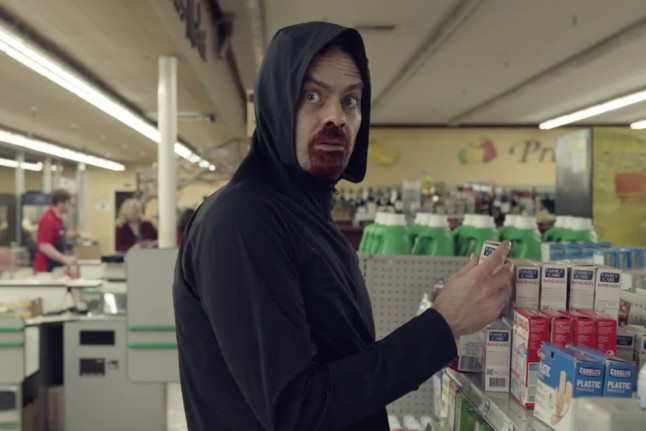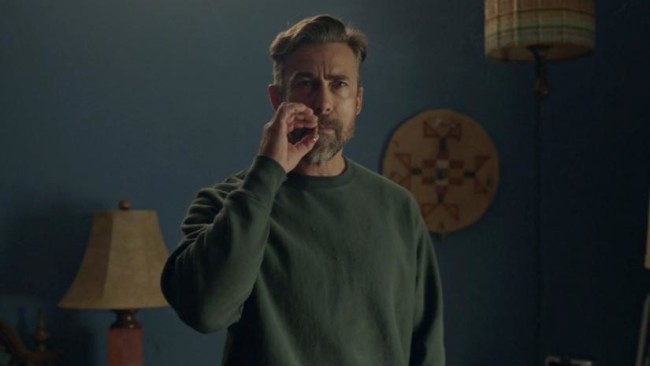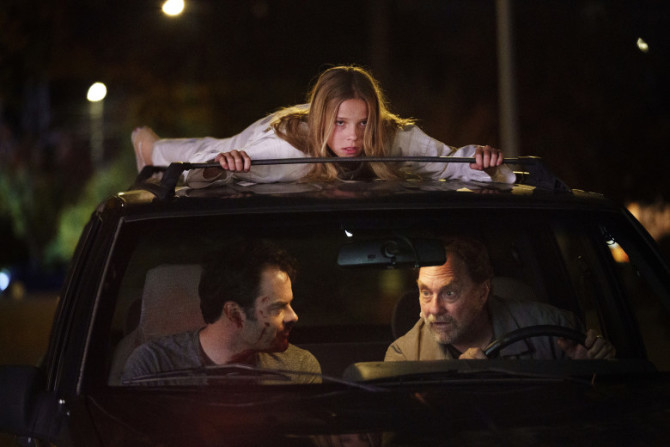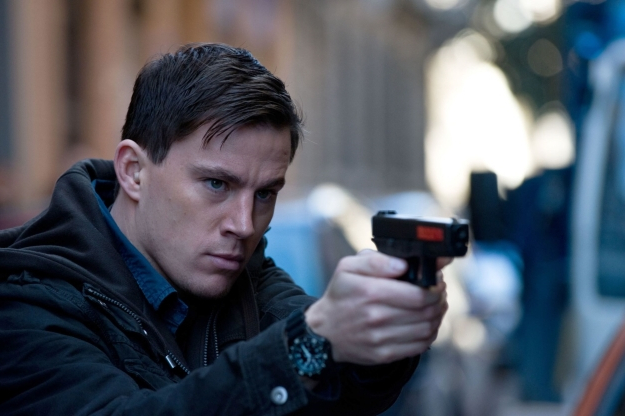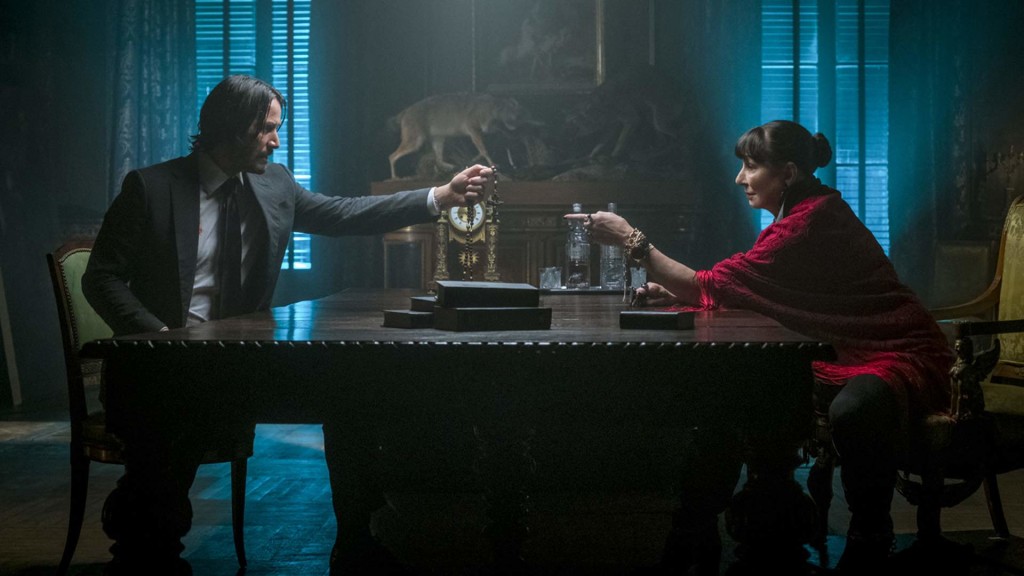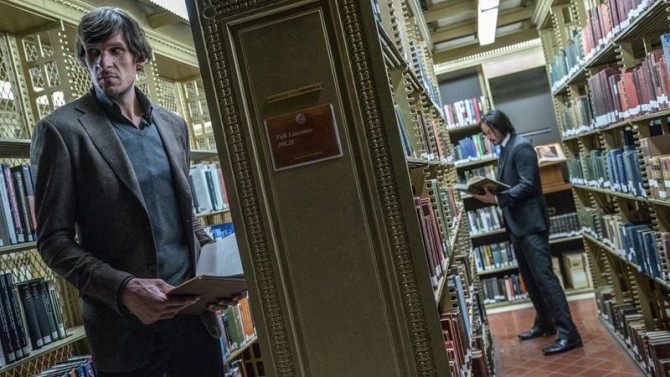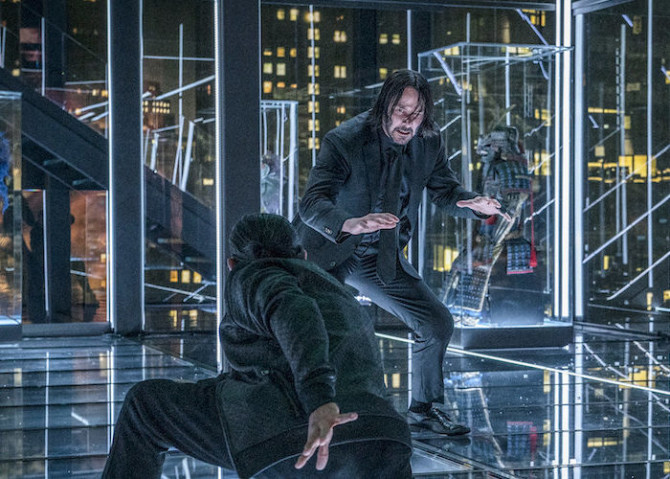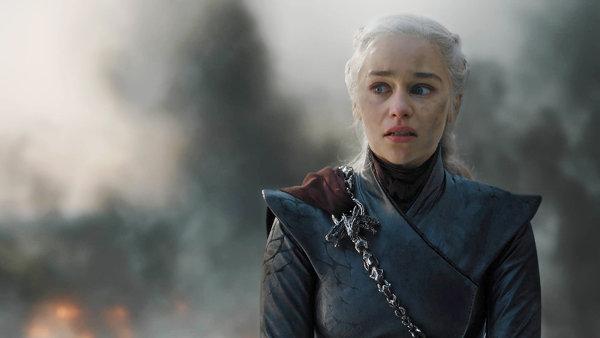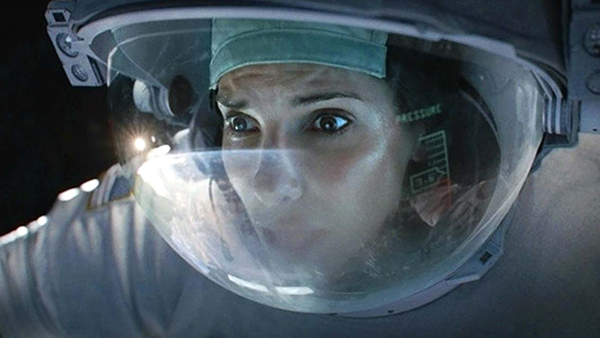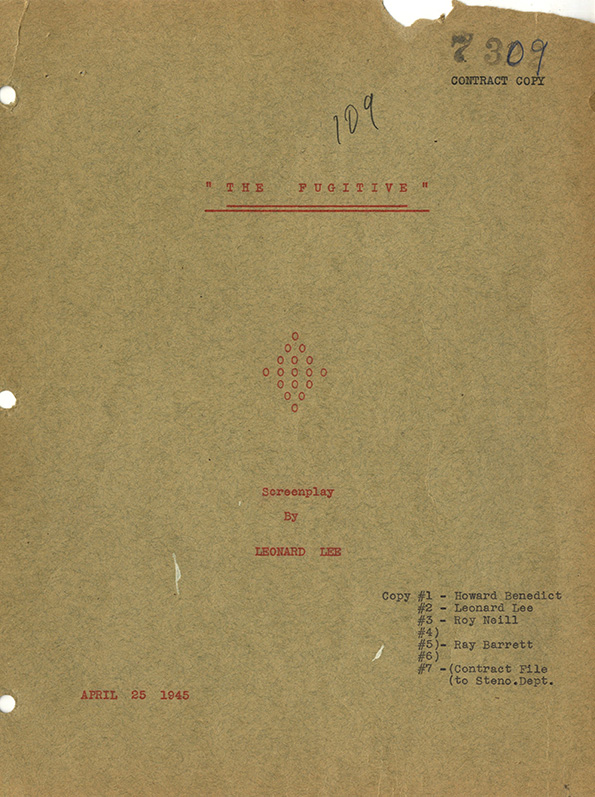Search Results for: F word
Is Barry Season 2, Episode 5 (“Ronnie/Lily”) really the best episode of television since 2010? I don’t know. But it’s in the conversation. I resisted discussing the episode until now because I figured only a small percentage of you watched Barry and to best appreciate the episode, you needed to watch the first 8 episodes of Season 1, and the four preceding episodes of Season 2. Did I really expect all of you to do that? No. But then I realized Ronnie/Lily is basically a standalone episode. As long as you understand Barry’s character and past, you can enjoy it.
Barry is a former hitman who’s moved to LA and joined an acting class. The problem is, he keeps getting pulled back in to do jobs, despite the fact that he desperately hates killing people. Due to a string of circumstances, Barry is “hired” to kill a guy who’s sleeping with another man’s wife. But Barry’s got a plan. He’s going to show up at the man’s house, he’s going to explain the situation, and he’s going to help the guy disappear so that they both get what they want. As Barry is helping the man pack, they walk into a giant trophy room. It turns out this guy is a freaking Taekwondo master. Barry’s a little freaked out by this, but they continue to pack. Then, just when Barry lets his guard down, the guy attacks. A long drag-down fight ensues.
It’s best if you actually watch the episode. But if you don’t have time, here’s what happens. Barry somehow manages to defeat the guy, who dies. But as Barry’s leaving, the front door opens and an 11 year old girl in a karate outfit appears. The two freeze, both look at each other, and the girl darts past Barry. Barry heads to the door, opens it, is about to leave, stops, closes the door. Oh no! We know that Barry now has to kill the daughter as well! So Barry goes searching through the house to find the girl when… she appears out of nowhere and attacks him. The girl is like a feral Taekwondo monster. She’s relentless, diving and scraping and biting and growling as she attacks Barry from every angle. Barry does everything he can to stay alive before the girl darts out the window and disappears into the neighborhood.
Barry goes back to his handler, Fuches, who’s waiting in the car. Fuches asks if he took care of business. Barry tells him about the girl. Fuches says, “Well she’s seen you. We gotta kill her.” The two go driving through the neighborhood until they come across her again. But instead of attacking her, she attacks them! The girl’s moves are almost inhuman and the guys don’t understand what they’re dealing with. That’s the gist of the episode and I won’t ruin the ending. But let’s just say it continues to unfold in an unexpected entertaining way.
If that sounds too bizarre to be good, I promise you this. They make it work. You can complain all you want in the comments about, “WHAT??? A LITTLE GIRL ATTACKS A GROWN MAN AND SHE LIVES???” or whatever other complaint you have based on my synopsis. It’s pointless. The only way to understand the genius of this episode is to watch it. Cause they take a lot of things that shouldn’t have worked and they not only make them work, they combine the ingredients into an all-time classic meal. You gotta understand how hard that is. The show that precedes this one HAS DRAGONS in it. It has zombie monsters. It has production value that rivals most 1960s war epics. Barry has people. That’s it! It reminds me how powerful a single writer with a few characters and a room can be. With that in mind, here are 7 screenwriting lessons to learn from Barry, Season 2, Episode 5.
1) Chase down weird unexpected ideas – The only reason this episode exists is because the stunt coordinator on Barry told Bill Hader (the co-creator and actor who plays Barry) after a long day that he knew of this young girl who was a karate master and if Bill ever had a story idea that included a young karate girl, he thought this girl was talented and would kill it. Hader says he then wrote down the idea of Barry getting into a fight with this girl. Later, when they were writing Season 2, he decided to make that the centerpiece of an episode. What’s important to note here is that Bill didn’t just come up with this idea. A person suggested it to him, which got him wondering if a character like that would work on Barry. This makes me wonder how many great ideas I’ve missed over the years because a random person didn’t come up to me and drop a bizarre idea. So my tip here is, instead of waiting for this to happen to you, be the person who suggests weird ideas yourself. At the beginning of the day’s writing session, suggest five weird ides to yourself and chase those ideas down to see if anything interesting comes of them. They very well may yield nothing. But if there’s a chance that one of them will lead to a creative explosion and something even half as good as Ronnie/Lily, it’s worth a try.
2) Look for components in a scene that you can play against type – When you imagine a scenario where a hitman comes into a guy’s house and tells him he’s here to kill him, you’re thinking the house owner is probably freaking out. He’s probably talking a mile a minute. He’s nervous and scared and jumpy. That’s how most writers would write this scene. The father character in this scene is the complete opposite. He has no reaction whatsoever. He’s as calm as calm can be. Playing this character against type creates a slow unnerving subtext to the scene. Because he’s being so non-reactive, we know something is up with him.
3) What’s the worst thing you can do your character in this moment? – This is the question Bill Hader asked when Barry showed up at this guy’s house. He thought, “What if, as they’re packing, they walk into a room, and it’s filled with Taekwondo trophies?” It’s a brilliant moment as it completely shifts the dynamics of the scene. A second ago this was just a guy. Now he’s a man capable of killing you with his hands. Always ask what the worst thing is you can do to your character in this moment. You won’t always use it. But it’s a quick way to find a great scene.
4) Once you open a line of suspense, let it ride – Remember that with suspense, you can add an insane amount of tension to a scene even during periods where little is going on. Too often I see writers create a suspenseful situation then ruin it by immediately jumping to the action. Here, when they walk in the Taekwondo room, Bill Hader has opened a captivating line of suspense. This is not an ordinary man. He’s a dangerous adversary. But Hader doesn’t jump the gun. He allows the man to slowly pack, to slowly walk back into the other room, and to continue packing. This is one of the most powerful sections of the episode even though, technically, nothing is happening. Let those lines of suspense ride!
5) Ground your episode with an emotional anchor – When co-creator Alec Berg read Bill Hader’s script for Ronnie/Lily, he had one note. Ground it in emotion so it’s not just this big wacky fight episode. In the show, Barry has a complicated relationship with his handler, Fuches. The man saved him when he was at his worst, but then turned him into a contract killer, a life Barry’s trying to leave. Hader decided to give us a little more on their relationship, so there are a series of flashbacks (never too long) of Fuches rescuing Barry from his tour in Iraq, and he ties those in with the present scenes of Fuches helping Barry find this girl. It’s a surprisingly emotional payoff, and a huge shift in their relationship going forward.
6) Don’t always start the scene on the obvious character – In Hader’s first draft of the episode, we follow Barry into the house all the way until he confronts the father. One of the writers suggested that this was boring. Instead, start by following the father instead. It was a game-changing choice because it resulted in us watching this random guy drive up to this random house, go inside, put his stuff away, and the whole time we’re thinking, “Who is this guy???” It totally changed the dynamic of the scene, where only later does Barry come in. Even then, we don’t see Barry. We only hear him off-screen. Nothing about this episode plays out the way traditional TV does. The DP even challenged Hader on this moment. “Why are we only hearing Barry? It doesn’t make sense.” “I don’t know, it just feels right,” Hader answered. And he was dead right. Way more interesting.
7) Add complications to fight scenes so they’re not like every other fight scene we’ve seen – One of the conscious choices Bill Hader and Alec Berg made early on about the Taekwondo dad fight was that it was going to be realistic. It wasn’t going to be perfectly choreographed. It was going to be messy to look at and the guys were going to be tired. They’d take breaks. More specifically, Barry gets an early hit on the guy’s windpipe, damaging it to the point where the guy is barely able to breathe. That wheezing breath becomes a centerpiece of the fight, helping to differentiate it from all the other onscreen fights we’ve seen. It was like the anti-John Wick and extremely refreshing.
Ronnie/Lili represents the power of “What if?” Pose that single question to yourself while you’re writing. It can be the dumbest “What if…” question in the world. But you’d be surprised at how often terrible ideas turn into great ones. “What if Barry was attacked by an 11 year old female Taekwondo master?” isn’t a scene you’d imagine in a show like Barry. Which is exactly why it’s become the most buzzed-about TV episode of the year. At least in a show without dragons. :)
Carson does feature screenplay consultations, TV Pilot Consultations, and logline consultations. Logline consultations go for $25 a piece or $40 for unlimited tweaking. You get a 1-10 rating, a 200-word evaluation, and a rewrite of the logline. If you’re interested in any sort of consultation package, e-mail Carsonreeves1@gmail.com with the subject line: CONSULTATION. Don’t start writing a script or sending a script out blind. Let Scriptshadow help you get it in shape first!
Genre: Crime
Premise: When a dirty Los Angeles cop’s partner is killed by a Korean gangster, he follows the gangster to Seoul to get revenge, teaming up with a Korean bodyguard-for-hire who has his own reasons to kill the target.
About: In what would have been a game-changing experiment, this 2007 project was set to be made in Korea. There would be two cops, one played by Channing Tatum, the other played by a Korean actor, and two movies would be edited, one with a focus on the Korean cop for the Korean market, and the other to focus on Channing Tatum’s cop for the American market. The script was close to ready, but just as they were about to shoot, the writer’s strike happened. Since then, the project never got up and running. Doug Jung is best known for having the near impossible task of turning what was once a good script, The God Particle, into what would eventually become Netflix’s, “The Cloverfield Paradox.”
Writer: Doug Jung
Details: 111 pages
It’s so hard to get a project to the finish line. If even one thing gets in the way, it could destroy all momentum. And if that momentum isn’t picked back up soon, the film may never see the light of day. People in high positions getting fired has been the harbinger of doom for thousands of projects throughout the years. Just look at Fox. Half their slate was wiped out when Disney took over. And that was just for the movies that were finished. An untold number of projects in development were wiped out as well.
But the event that doomed this 2007 project was the writer’s strike. Channing Tatum, who was the most desired actor in the world at the time, was ready to make his Departed. They were mere months away from shooting and then… writer’s strike. The project never found its footing again. The irony is that 2019 seems like the ideal time to make a project like this. Who knows? Maybe this project isn’t dead yet.
Ethan is a Los Angeles cop who knows a thing or two about our justice system. Mainly that they don’t deliver. So when Ethan charges in on a man who’s murdered a woman after doing unmentionable things to her, he takes that man to the top of the building and TOSSES HIM OFF IT. Haters can suck it.
Because internal affairs can’t prove he tossed the man off the roof, Ethan’s off to his next gravity experiment. It’ll be a little tougher this time since his partner and best friend, Vincent, has been asked to keep a closer eye on him. While investigating a murder, the two find themselves in the middle of a high profile Korean criminal underground meeting. During the meeting, a dangerous Korean man named Moon kills the high ranking “president” in the room (this is what the Koreans call their major crime bosses). When all hell breaks loose, Ethan watches in horror as Moon slits Vincent’s throat then flees back to his country, where he plans to make a play for a presidency.
Devastated, Ethan gets on a flight to Seoul to get his revenge. But the Korean police don’t want him here. They know what he’s capable of and tell him to go home. Ethan sneaks away and eventually teams up with Park, the disgraced bodyguard of the “president” Moon killed. With Park’s knowledge of Seoul, Ethan figures he’s got a shot of finding Moon. But they’re going to have to act fast. Moon is moving up the ladder quickly. It’s only a matter of time before he becomes so powerful, he’s untouchable.
I’m always leery of these gimmicky movies (we’ll have one main character for one country and another main character for another country!). It’s hard enough to get a story right as it is. Less than 20 movies a year are able to do that. So how are you going to write a script that’s able to alternate main characters depending on the edit?
But it occurred to me that it’s not as hard as it sounds. You just write two really good characters. That way, it won’t matter who you cut to. We’re going to want to spend time with either.
Another thing I’m always reluctant about is generic cops and robbers scripts. These two elements have been explored so extensively over the years, that it’s nearly impossible to find a fresh way into the genre. And when you don’t have anything fresh, all that’s left is men with guns. And men with guns isn’t interesting.
For this reason, I was ecstatic that the bulk of this story took place in Seoul. I know a few of you hate when I use this word, but the Korean mythology – by that I mean the world-building of the Korean underworld – was unique enough to make this stand out from your average cops and robbers flick. I liked, for example, learning about the “presidents,” which were basically the Korean versions of mafias. I liked learning about the code between the cops and the gangsters. Everything about this universe was different from your average American cops and robbers movie.
The script also helped me realize what was missing from another recent ‘men with guns’ movie, John Wick 3 – a personal reason for all the killing. In John Wick, there isn’t a single emotional component to what John is doing. He’s just trying to stay alive. That was a big reason why all of his kills felt so empty. But in this script, Ethan is clearly torn up by his partner’s murder. And it’s for that reason that we care so much about his objective. We were there when Moon killed his partner. So we’re not leaving until we see him do the same to Moon.
Where the script faltered was in the character of Park. Park had an interesting story himself in that the man he was tasked with protecting was killed on his watch. But Park is more of a gun-for-hire. He had no personal attachment to the president that was killed. This leaves his emotional journey hanging, and not nearly as interesting as Ethan’s.
Still, I enjoyed the fish-out-of-water angle of Ethan being in Korea and Park helping him understand that it’s different here. You can’t just do whatever you want. You’ve got to operate with a sense of honor and respect, something Ethan is terrible at. It was sort of like a serious version of Rush Hour. It had that same kind of dichotomy between the main characters but without all the silly jokes and Jackie Chan jumping on busses. If you’re coming for Van Danzens, this is not your movie.
Despite enjoying this script, it never reached the level of the movie it was inspired by, The Departed (which came out a year earlier), because it didn’t have any flashy characters. There was nobody who popped off the page. And you need that in a script like this because you don’t have the big flashy concept. You have to find your flash in other places. The Departed had Jack Nicholson. We needed a character like that here.
Don’t give up on “Untitled” though. We may see this script come to life yet.
[ ] What the hell did I just read?
[ ] wasn’t for me
[x] worth the read
[ ] impressive
[ ] genius
What I learned: “Men with guns” movies aren’t going to work on their own. You need an angle. What we’ve learned this week is that a unique mythology, whether made-up or based on a real place somewhere else in the world, can be that angle. With John Wick, it’s the “honor among assassins Continental” mythology. With this script, it’s the Korean crime world. Basically, if you’re not bringing us something new that we haven’t seen before, what incentive do we have to watch your movie?
Genre: Action
Premise: John Wick is being hunted by every single assassin in the world. And John Wick on a horse.
About: John Wick didn’t just kill the 200 characters who came at him in Parabellum. He killed Avengers Endgame, dethroning the box office behemoth with a 57 million dollar opening, almost twice that of John Wick 2’s opening box office weekend.
Writers: Derek Kolstad and Shay Hatten and Chris Collins & Marc Abrams
Details: 130 minutes
I have to be careful with today’s review.
The John Wick franchise is one of the best underdog stories in cinema history. The first John Wick script was laughed at by Hollywood. It was about a retired assassin who went on a killing rampage because of a dog. It starred an over-the-hill former movie star who was in the process of joining Bruce Willis and Nicholas Cage in the direct-to-digital doldrums. The movie, a likely candidate for direct-to-digital itself, needed to have literally every single critic who saw it say it was awesome to get publicity. And even when the first film did well, it didn’t do well enough for a studio to think it was worthy of a wide-release sequel. Still, Lionsgate took a chance on a bigger sequel, and the box office results legitimized the franchise, ensuring that more sequels would be in the works. John Wick is the little engine that could. And a wonderful reminder that there are still popular projects that can be birthed from screenwriters’ imaginations.
With that said, here’s my beef. John Wick started out so good, I thought I was in the process of watching a classic. But then each fight scene became less interesting than the previous one, when it should’ve been the other way around.
If you haven’t seen the film, it continues where the last one left off. John Wick has killed an assassin inside the sacred confines of The Continental hotel, a huge no-no. It’s such a no-no, in fact, that John Wick becomes the number one bounty in the world, at 14 million dollars. Since it’s rare for a head to pay that much, every single assassin on the planet will be after him. I want you to remember that for later, as it’s a pivotal area the movie could’ve improved in.
Priority number 1 for John Wick is to get out of New York City, which isn’t easy. But he eventually gains passage to Casablanca of all places, where he reunites with an old assassin friend (Halle Berry and her dogs) and tries to convince some dude high up on this bonkers Wickian mythology ladder to get this price off his head. The guy tells him he’s got to meet some other guy who literally lives in the middle of the desert, who tells him if he wants this, he has to kill the head of the Continental, sending him right back to where he started. It’s here where Wick takes on a late-arriving villain who’s been dreaming his whole life of killing John Wick. Is it finally the end for the king of the double-tap?
Okay so look. John Wick has always been about two things. Wacky assassin mythology and fight choreography porn. You could legitimately argue that these are the only two things that exist in the franchise. However, you would also have to point out that it does both of them really well. The mythology, in particular, is so weird, that you can’t help but bask in it. I love these tatted up bounty order-taking nurses. I love how there are a dozen different sacred coins, all of which mean something unique to this assassin community. I love how every tenth person on the planet is an assassin waiting for John Wick to walk past them so he can start following him. I love the way-too-dramatic look on everybody’s faces when an order is called in to “deconsecrates” the Continental. I love that they gave the movie a title that three people in the world knew the definition of.
I absolutely loved John Wick killing a 7 foot man with a book, unofficially making the 300 year old author an accomplice. I loved John Wick using stable horses to kill assassins. I loved the “hallway of knives” fight. I even loved the motorcycle sword set piece, despite the fact that it felt like something we’ve seen before.
However, I didn’t like any of the fight scenes after that. I thought Halle Berry’s character was annoying – a classic case of a secondary character hating the main character for no other reason than to create conflict, not cause there was any actual organic reason. All of the dog choreography felt overtly staged, taking me out of the movie. And how many faceless bad guys does John Wick have to kill in a scene before it starts getting tiresome? The answer is 10. The movie thought the answer was 50.
Then Halle Berry just disappears, never to be heard from again. If they’re going to try that hard to spin off a new character, they might as well have admitted it. “I’ll see you again if the internet response is positive,” Berry should’ve left Wick with. Then Wick walks in a desert for no other reason than it looks cool to have a sharply dressed Keanu Reeves walk in a desert. This is where I started to lose faith in the film.
But what really bummed me out was that they went with beauty over ingenuity for the film’s climax. Having Wick fight three guys who I only found out afterwards were big action stars from another film in this glowing neon glass room that had zero reason to exist other than that it looked good on camera was disappointing. The whole reason I loved the library scene and the horse stable scene and the knife hallway scene is that Wick could use the unique environment to give us action scenarios we hadn’t seen before. The neon glass castle didn’t have any of that. And I suppose they could argue that they wanted the focus to be on the fight, not the gimmicky surroundings. But I didn’t have any idea who these rando guys were. And by that point, we’d seen John Wick punch and kick so many people, that any fight he was in now was going to look redundant.
The great thing about that library scene was how unique the opponent was. I figured, when they said that every assassin in the world was going to be after him, that we were going to get a couple of dozen unique characters like that, all of whom had different talents and fighting skills. Instead, they brought in every top Asian stunt man in the business and used them for Wick’s adversaries. I can’t figure out for the life of me why they didn’t give us more variety. I thought maybe they were saving the adjudicator (a tall short-haired woman) for a battle, which would’ve been cool. But nope. Nearly every bad guy he faced was similar.
And yet, I can’t get too mad at John Wick. If you love pure action, I don’t see how you can not love this movie. It’s only a tough watch for those who watch way too many movies like myself and who wouldn’t mind a little extra character development so we care more. Oh, and I love the fact that director Chad Stahelski and Keanu Reeves want to keep making John Wick movies til they die. I think that’s hilarious. In a world where snobby actors on hit shows and franchises are always ungratefully begging to get out of their contracts, it’s good to finally see two people who are like, “Nope, we’re good. We have no intention of stopping.”
But Reeves and Stahelski will have to watch out. If they get even a little bit lazy, this franchise could fall apart. Bring us whatever inspired the first half of John Wick 3 for future installments and I’ll happily make another reservation at the Continental.
[ ] What the hell did I just watch?
[ ] wasn’t for me
[x] worth the price of admission
[ ] impressive
[ ] genius
What I learned: A common screenwriting mistake is to get hung up on what you’re going to do in a scene and not be open to better ideas. John Wick 3 made a crucial mistake in one of its early scenes. John must go to an underground doctor to get a shoulder wound sewed up. The problem is, he’s only got 5 minutes before the bounty begins. The writers choose to use the scene to set up some plot. The doctor, an older Asian man, isn’t allowed to work on John once the bounty begins. So it’s a race against time to sew him up. Afterwards, they discuss what his plan is, which sets up the next sequence. — What they should’ve done instead is have the doctor work on him, giving John everything he’s got, cutting back and forth from the clock, time ticking down, time ticking down, time ticking down, and then, the SECOND we hit the top of the hour, the doctor should’ve switched from helper to killer, grabbing available weapons (which would’ve been fun in a doctor’s office) and trying to kill John to get the bounty. I think they were so locked in on making this an exposition scene that they didn’t see an obvious awesome scenario.
I have not been watching Game of Thrones like the rest of the universe. However, I’ve been paying close attention to reactions from the final season, since Game of Thrones creators Benioff and Weiss will be taking over my beloved Star Wars going forward. What everyone seems to be so upset about is that one of the main characters, Daenerys, made a major turn in the last episode that goes completely against her character. Staying with Star Wars, a certain other director who shall remain nameless (his name rhymes with Sighin’ Cronsohn) made a similar mistake in The Last Jedi, where he had the beloved Luke Skywalker act in a way he never would.
All of this got me thinking about one of the oldest questions in writing. Why are endings so hard?? Here’s how I see it. In a well-told story, everything is leading up to a clear resolution. For example, if your movie is about a cop in a building trying to stop a band of terrorists, the resolution is most likely going to be him stopping the terrorists. The problem is that if you give us the exact resolution we’re expecting, we’re going to be let down. For this reason, writers try to give us a different, unexpected resolution. Luke Skywalker refuses to fight Kylo Ren. Daenerys turns into the female Hitler. Unfortunately, it’s really hard to give us an ending we had no idea was coming and it still make sense. The whole point of your story is to set up what’s going to happen in the end. Now you’re telling us none of that was relevant?
Today I’m going to share six tips that should help you avoid making giant mistakes like this. Use them separately or combine them to create the ultimate ending super-weapon.
I’ll start with the most obvious and, unfortunately, most boring solution. IF WE LIKE YOUR CHARACTERS, WE’LL LIKE YOUR ENDING. It’s rare that I watch a movie where I love the characters and hate the ending. That’s because when you’re invested in the characters, you care more about them than some well-crafted plot twist. Look at Die Hard. Die Hard has a standoff between the hero, the villain, and the hero’s wife. It is a scene we have literally seen hundreds of times before. There’s nothing exceptional about the moment at all. The ending works purely because we love John McClane, we detest Hans Gruber, and we love John’s wife. Whatever occurs here, as long as our hero wins, we’ll be happy. So start by writing characters that we love.
You could extrapolate the flip side of this to The Last Jedi. Not many people liked the Luke Skywalker Rian Johnson created. He was crabby, defeatist, unhelpful, annoying, and drank green milk from a wildebeast’s teet. It could be argued that the dye was already cast for the ending. We disliked Rian’s Luke so much that it wouldn’t have mattered what he did.
Solution number 2 for a strong ending is the CLIMAX OF A PERFECTLY CONSTRUCTED CHARACTER ARC. This means that you’ve set up a well-defined flaw in one of your main characters, you have explored your character bumping up against that flaw the whole movie. And then, when the final battle occurs, they break through and overcome it. The best example of this I’ve ever seen is The Matrix. And I say that because the movie’s climax takes place in the most boring setting possible – a hallway – and it’s still amazing. The reason it’s amazing is because it’s all about Neo’s character arc. He spent the entire movie struggling with his belief in himself (his flaw), and now, when the pivotal moment arrives, he believes, and is thus able to defeat the villain.
Solution number 3 is MAKE IT IMPOSSIBLE – The problem with a lot of writers is there’s this sort of uninspired inevitability to their story. We know where they’re going because they make it so insanely obvious that that’s where they’re going. From there it’s just a matter of connecting the dots. Take us through beat 1, to beat 2, to beat 3, and the movie is over. The way to conquer this inevitability is to make things IMPOSSIBLE for your hero. I’m talking you make it so difficult EVEN YOU DON’T KNOW HOW THEY’RE GOING TO DO IT. Then, and only then, is your hero’s success going to have the enormous impact you’re looking for. Take a look at the last 20 minutes of Gravity. Even though you’re watching a Sandra Bullock film, at every turn it seems like there’s no way she’s going to survive.
Solution number 4 is the SUPER PAYOFF – Audiences LOVE payoffs. They’re cinema crack. Therefore, one of the trickiest, yet most effective, ways of creating a great ending, is to pay off all those setups you’ve been planting throughout your script. And if you haven’t been planting setups to pay off in your climax, what are you doing? The two films I’ve seen do this better than anyone else are Back to the Future and The Shawshank Redemption. It’s payoff after payoff after payoff after payoff. Where was the payoff in Luke’s final trickery in The Last Jedi? I’ll give you a hint. There wasn’t any. Which is why it was so lame.
Solution number 5 is a DIFFICULT CHOICE(S). If characters have easy choices in your ending, you probably don’t have a good ending. A huge part of what makes an ending great is the uncertainty behind it. There are no easy answers. There are no quick solutions. Your hero is going to have hard choices to make. The most famous example of this, of course, is Casablanca. But you can see it in a lot of movies. There’s a great moment at the end of The Mule where the cartel tells Clint, “That’s it. If you deviate one more time, we put a bullet in your head.” And on that very mission, he learns that his ex-wife is sick in the hospital. She’s probably going to die. Does he finish the mission? Or go see the mother of his children and grandchildren before she’s gone forever?
Finally, solution number six is MINING EMOTION FROM THEME – This is really hard to do since theme can often work against you. By this I mean, you can have great story ideas but have to abandon them because they aren’t extensions of your theme. The worst thing that can happen is you sacrifice everything to service a weak theme. This is what happened at the end of The Last Jedi. Rian Johnson was trying to push some complicated theme that only made sense if you read a 3000 word Last Jedi think piece on the internet, and as a result, we lost what could have been one of the most epic lightsaber battles ever. However, when you do this right – when the elements gel together – it can be magical. Pixar does a better job of this than anyone. Their movies are theme-heavy, but the difference between them and Johnson is that their themes are incredibly simple. At the top of the heap is Toy Story 3, which pushes the theme of “moving on.” Closing out the movie with a scene of the toys being given to a new child who could love and enjoy them just as much as their previous owner was the most emotionally satisfying way we could’ve concluded that theme.
It should go without saying that, like everything in movies, your gut plays just as strong a part in nailing your ending as these tips. You could follow any one of these suggestions and come up with something lame. If it doesn’t FEEL right, you probably want to go in a different direction. Good luck. And feel free to share your own “ending” tips in the comments.
Carson does feature screenplay consultations, TV Pilot Consultations, and logline consultations. Logline consultations go for $25 a piece or $40 for unlimited tweaking. You get a 1-10 rating, a 200-word evaluation, and a rewrite of the logline. If you’re interested in any sort of consultation package, e-mail Carsonreeves1@gmail.com with the subject line: CONSULTATION. Don’t start writing a script or sending a script out blind. Let Scriptshadow help you get it in shape first!
One of the things I remember when I started out screenwriting was the paralyzing fear of producing some sort of “tell” that I was a newbie. Something in my script would act as a giant flashing marquee that lit up my status as an amateur. Many shared in this fear. There used to be entire screenwriting message boards dedicated to whether your script should have two brads on it or three. Or if your script should have a cover page attached. Strangely, many of these debates are still being had! Should you use the controversial, “We see,” when writing? Can you include camera directions?
Well I’m here to give you the REAL, the DEFINITIVE, list on what readers really care about when they’re reading a script. We’re going to put all of your old fears to bed. And maybe provide you with a few new ones. And because I’m feeling generous, I’m going to list these factors in order of importance. Finally, we’ll be able to answer that age-old question: “Will a reader toss my script if I use two spaces after a period instead of one?” Below are the top 10 things a reader cares about when reading a script…
1) Formatting – If a script is not formatted properly (correct font and margins), it’s always a harbinger of bad things to come. The good news is, if you buy screenwriting software, you don’t have to worry about this! There, I just solved the number one problem for you.
2) Insane page counts – The FIRST THING a reader does is check the page count. If they see anything over 120, they’re mad. If they see anything over 130, they’re furious. If they see anything over 140, they’ve mentally committed to skimming half your script. 100-110 pages is the optimal screenplay length. Stick with it or I’ll stick that missing third brad in your face!
3) Readability – Is the script easy to read? Do my eyes move across the page effortlessly? Do they move down the page effortlessly? Or am I stopping a lot, re-reading sentences in order to understand them? Am I confused about why a character said something? Is getting through the text like walking through quicksand? Readability is so important.
4) Engagement – Am I engaged by the story? Am I immediately pulled in? Do I want to see what happens next? Do I want to turn the page? Do I want to keep turning the pages? This goes back to the 10 Page Challenge. Hook me then continue to provide reasons for me to keep reading. If you can do this, I don’t care about any other mistakes you make.
5) Characters – Am I pulled in by a character? Am I intrigued by a character? Is a character so darn charming I fall in love with him instantly? As soon as a reader likes one of your main characters, you’re golden.
6) The dialogue isn’t bad – You’d think I’d say, “That the dialogue is good.” Sure, that would be great. But the truth is, I read, maybe, three scripts a year where the dialogue is stand-out good. When I’m reading, all I care about is that the dialogue isn’t bad enough that it draws attention to itself. Cringe-worthy lines. Try-hard banter. On-the-nose exchanges. Overtly mechanical exposition. The second I start noticing weak dialogue, the script is a passenger on the Titanic.
7) Is there anything special about this writer/script? – The large majority of the time, I’m reading bland concepts with bland, by-the-numbers, execution. I’m always looking for a script that’s got that extra kick to it. Maybe the dialogue is snappier. Maybe the writing style is charged (a la Christy Hall). Maybe the scenes are playing out in unexpected ways. If you can find a script with one elevated factor, you’re probably going to recommend that writer to other people.
8) Spelling/grammar mistakes – I’ll let one mistake slip. But when I see two mistakes early on, my faith in the script plunges. Three mistakes in the first 10 pages? Forget about it. There are screenwriters who say this shouldn’t matter. THEY’RE WRRRROONNNNG!!! I’ve got the biggest sample size to work with in Hollywood. And I can tell you that of all the times I’ve seen three spelling/grammar mistakes in the first ten pages, 99.999999% of the time, the script is doomed.
9) Confidence – Does the writer seem comfortable in the medium? Does it feel like they have a clear plan for their story? Confidence implies that they’ve been here before, which more often than not means a better script. A writer who writes tepidly, who seems unsure of their choices and looks constrained by this weird screenwriting format is a writer whose script I usually dislike.
10) They know what to do after page 45 – 15 pages after the first act ends is when 90% of screenplays fall apart. If your script is still building and still has momentum after page 45, it’s a strong indication that you’re aces with structure, providing me with mucho confidence that you can get me to the finish line.
Carson does feature screenplay consultations, TV Pilot Consultations, and logline consultations. Logline consultations go for $25 a piece or $40 for unlimited tweaking. You get a 1-10 rating, a 200-word evaluation, and a rewrite of the logline. If you’re interested in any sort of consultation package, e-mail Carsonreeves1@gmail.com with the subject line: CONSULTATION. Don’t start writing a script or sending a script out blind. Let Scriptshadow help you get it in shape first!

